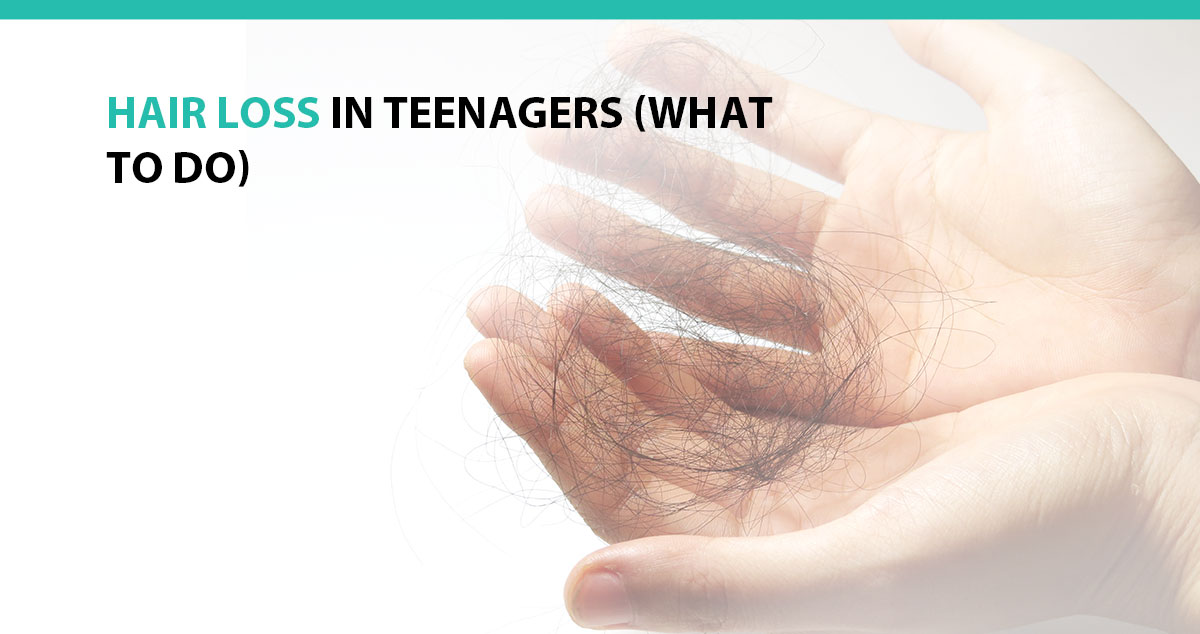
It’s never easy for an adult to go through pain and suffering in life, but there’s something especially cruel about a child who has to endure it. The underlying reasons for the hair loss in young people under age 20 are numerous, but we’ll cover an overview of some of them today.
It’s important to consider both genetic and non-genetic causes when getting to the bottom of the case. Some of the factors that can contribute to hair loss in teens include the following:
- Genetics: Family history plays a significant role in hair loss. If a teenager has a family history of conditions like androgenetic alopecia (male or female pattern baldness), they may be genetically predisposed to experience hair loss at a young age.
- Hormonal changes: Adolescence is a period of significant hormonal fluctuations. Increased levels of androgens (male hormones) during puberty can lead to hair thinning and loss in both boys and girls. And research shows that teenage hair loss is experienced more by females than males.
- Medical conditions: Certain medical conditions can contribute to hair loss in teenagers, including polycystic ovary syndrome (PCOS) and autoimmune conditions like alopecia areata. PCOS is a hormonal disorder that affects women of reproductive age and is characterized by high levels of androgens, which can lead to hair thinning or excessive hair growth in unwanted areas (hirsutism). Thyroid disorders are the usual culprits falling under medical conditions, as an unhealthy thyroid affects the body’s metabolism and also its temperature, which in turn affects hair volume.
- Nutritional deficiencies: Inadequate nutrition, particularly deficiencies in essential macronutrients and minerals such as iron, biotin, zinc, and protein, can impact hair health and contribute to hair loss. Also, a lack of certain essential vitamins, like A, C, D, and E can be the cause. Even food allergies can cause someone to miss out on certain ingredients needed for hair health.
- Crash diets and extreme weight loss: Teens who engage in crash diets or extreme weight loss programs may experience hair loss due to nutritional deficiencies and stress on the body. Crash diets can be dangerous because they may restrict vital nutrients such as protein and zinc. If done over a long period, these deficiencies can cause telogen effluvium.
- Medications: Some medications prescribed to teenagers for various health conditions may have hair loss as a side effect. This can include medications used to treat acne, depression, or autoimmune diseases. Imagine trying to get rid of one embarrassing dilemma like pimples only to have it cause further problems like hair loss.
- Hairstyling practices: Excessive use of heat styling tools, tight hairstyles (e.g., braids, ponytails), and chemical treatments can damage the hair shaft and contribute to hair loss when practiced regularly. Lack of hygiene and poor hair management also fall into this category, leading to a dry scalp, which can make hair brittle and begin to shed.
- Stress: High levels of stress, whether related to academic pressures, social issues, or family problems, can disrupt the hair growth cycle and lead to hair loss in teenagers. We’ll do a deeper look into this next time, as it deserves its own dedicated space due to its particular effect on people this age.
- Trichotillomania: Some teenagers may develop trichotillomania, a compulsive hair-pulling disorder often associated with stress and anxiety. This condition can result in noticeable hair loss. Those who experience it say they have no control over the action, which makes it particularly difficult to reverse.
- Infections or skin conditions: Scalp infections or skin conditions like seborrheic dermatitis or psoriasis can affect the health of the hair. They can be caused by fungi, yeast, or bacteria and can affect the hair follicles, causing redness, pus, and scarring, leading to hair loss. If you notice any of the above symptoms, it is crucial to seek treatment right away.
It’s important for teenagers experiencing hair loss to consult with a healthcare professional or dermatologist to determine the underlying cause and receive appropriate treatment. Early intervention can often yield better outcomes in addressing hair loss issues in teenagers. Additionally, maintaining a balanced diet, managing stress, and practicing healthy hair care habits can help support overall hair health.
Remember that the specific approach to addressing hair loss in a child will depend on the underlying cause. Open communication, emotional support, and a proactive approach can help both the child and parents manage and cope with hair loss effectively. We are here for you at Advanced Medical Hair Institute should you run into this challenging situation.










